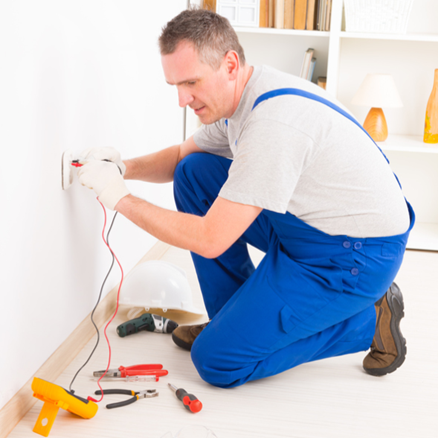

The Importance of a Home Safety Check Before Selling
 The prospect of a profitable sale can push REALTORS® and individual homeowners alike to list a home before it’s truly ready to hit the market. However, due to fiduciary and other obligations, a real estate agent can be at risk of a lawsuit if a homebuyer finds problems with the house that were not disclosed during negotiations. Real estate agents should be sure to understand their obligations regarding disclosure (by talking to their broker, a real estate attorney, taking classes, etc.). One step that can help identify items that might need to be disclosed is by doing a thorough safety check before listing a home for sale. The prospect of a profitable sale can push REALTORS® and individual homeowners alike to list a home before it’s truly ready to hit the market. However, due to fiduciary and other obligations, a real estate agent can be at risk of a lawsuit if a homebuyer finds problems with the house that were not disclosed during negotiations. Real estate agents should be sure to understand their obligations regarding disclosure (by talking to their broker, a real estate attorney, taking classes, etc.). One step that can help identify items that might need to be disclosed is by doing a thorough safety check before listing a home for sale.Home safety includes all of the grounds. ConsumerSafety.org puts out a guide covering in-home and out-of-home safety. Much of this information that follows comes from the Home Safety Guide published by ConsumerSafety.org. Lawn, Landscape and Pool Safety Pools are far and away the most dangerous part of a residential home. There are several steps a homeowner should take before listing a home with a pool for sale:
The average monetary value of property damage from a fire was $16,610 in 2016, according to data collected by the National Fire Protection Association (NFPA). If the homeowner is accused of negligence, they will have to pay for all damages. This is why properly removing fire hazards in the home is essential. Before listing the home for sale, check for damaged plugs and appliances, overloaded outlets and multiple extension cords. All three of these are risk factors for a home fire. Additionally, you’ll want to ensure that outdoor cooking appliances like grills are at a safe distance from the home. Kitchen Safety It shouldn’t be a surprise that the kitchen is one of the most hazardous areas of the home, since it has the most electrical and gas appliances. One crucial but often overlooked safety feature of a kitchen is a working fire extinguisher. By purchasing one and leaving it in the kitchen, you will be preventing any negligence lawsuits pertaining to grease or electrical fires. Hopefully these guidelines can help you as a REALTOR®, real estate agent or individual homeowner minimize the risk of lawsuits. By taking the actionable steps from this Home Safety Checklist and applying them to the relevant instances in your home, you will be much less likely to become a victim of a negligence lawsuit, and you will also keep the future owners safe, which is as important as anything. Adapted from an article by Cal Cook, Consumer Finance Investigator at ConsumerSafety.org. This material is not intended to be relied upon as a statement of the law, and is not to be construed as legal, tax or investment advice. You are encouraged to consult your legal, tax or investment professional for specific advice. The material is meant for general illustration and/or informational purposes only. Although the information has been gathered from sources believed to be reliable, no representation is made as to its accuracy. |
Today's Top Stories |
